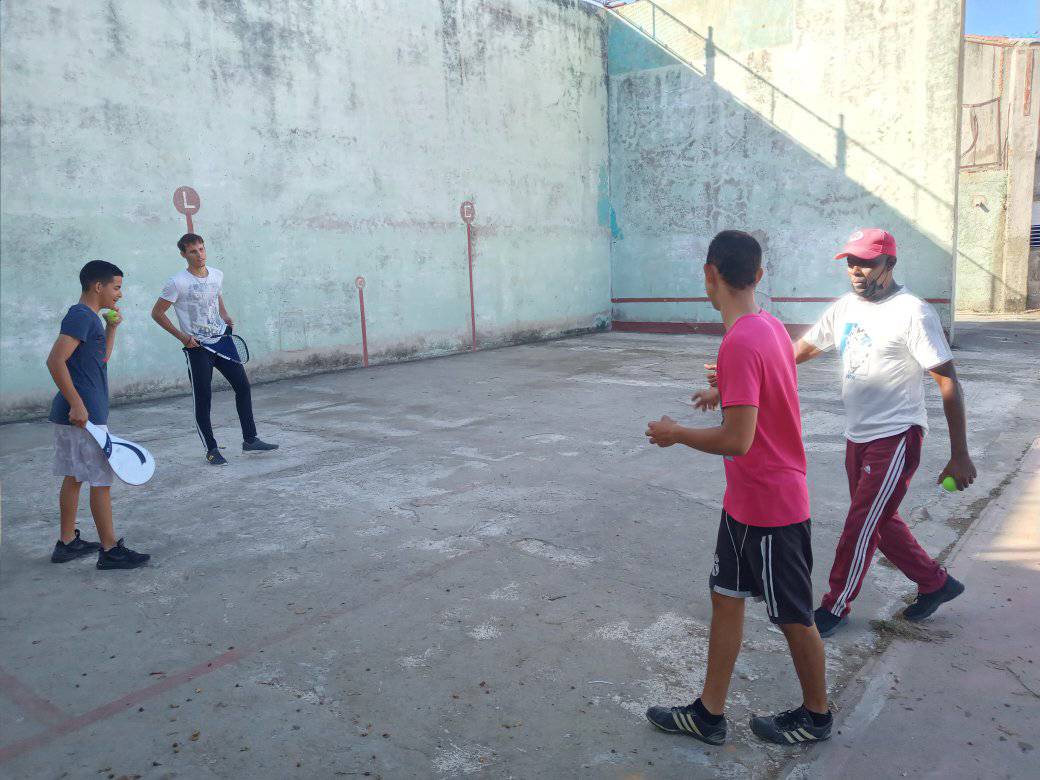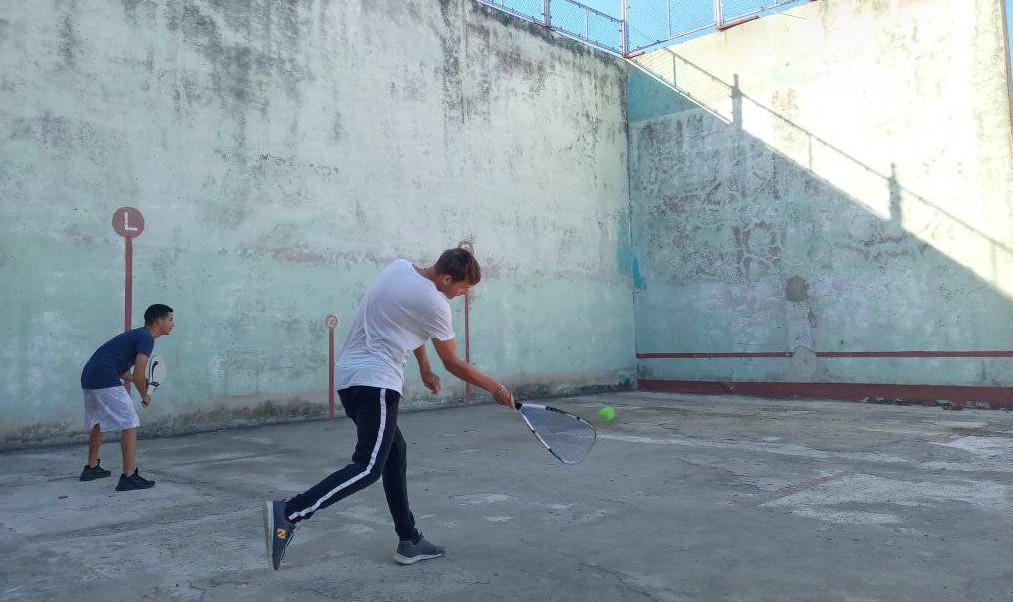CAMAGÜEY- This Friday the athletes who will represent Camagüey in the first category National Racquetball Championship, or social event, to be held in the capital from February 11 to 17, left for Havana.
The male duo is made up of Gerardo Valdés and Adonai Mulen, the latter will also compete in the individual section.
In the last edition, Camagüey obtained the second national women's place, but this year it goes without female representatives, since the girls disassociated themselves from the Cuban sports movement and the relay has not yet appeared.
After several days of practice in the fronton of the Josué País elementary school, in La Vigía, the prospects of the players and coaches is to be among the top five in Cuba.
"The preparation has been good, because we haven't stopped training any day. This is not a racquetball court, but we still take advantage of it to perfect our movements and serve," rookie Gerardo Valdés told Adelante.cu.
The official field that they will find in Havana has four walls, a setting in which the people of Camagüey have never played, accustomed to the three walls of the Basque pelota court.
"We will see in the competition to what extent this can affect us, but we are not the only ones, many other provinces also suffer from the same problem. It is my first event, and beyond the result I am excited to participate and face rivals from all over the country" .

Racquetball descends from Squash, and due to its status as a racquet sport between walls, many confuse it with Basque pelota or believe that it is one of its modalities. The truth is that, at least in Cuba, it is common to see athletes practicing both disciplines.
Jesús Valladares is the coach of both sports, and while he prepares the last instructions for the racquetball players before the trip, he also guides exercises on the court for the young pelotaris.
"The national pioneer and school events of Basque pelota will be in Mayabeque in April and May, respectively. In these categories, the frontenis modality is practiced for both sexes, and frontball only for men," he explained.
"In the Juvenile they play with a wooden paddle and a hard ball, the competition will also take place in May, in Pinar del Río. Where we see real possibilities of getting a good performance is with the children of the pioneers," he added.
Camagüey is one of the few Cuban provinces without a public fronton where this sport can be popularized, since the one that existed in the areas surrounding the Casino Campestre was demolished with the passage of cyclones Ike and Paloma, and could never be rebuilt.
"It was a crowded space, the fans went to play and from there they could attract potential athletes," recalls Valladares.
The Provincial Sports Directorate does not have any facilities of this type, and those found in other institutions remain in disuse, which explains the lack of good results in these sports since Lesyanis Castillo.
The pediment of the old Champagnat College of the Marist Brothers, today Josué País Elementary School, was ordered to be built by a Basque priest in 1956, and continues to be the main stage for the preparation of racquetball and Basque pelota athletes in Camagüey.
Translated by Linet Acuña Quilez

